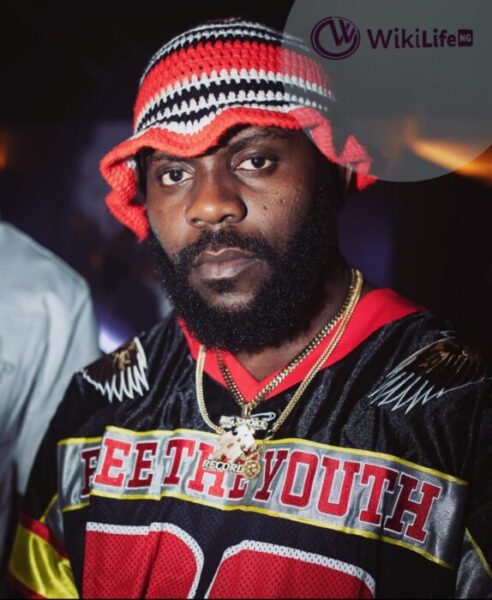Entertainments
In Defense of Odumodublvck and Shallipopi -By Emmanuel Chimdiebere Ogamdi
There are billions of people on Earth, and we all listen to different kinds of music. We have different tastes in music, and our taste is reflected in the choice of musicians we like. Collectively, these musicians tell our stories — the human story. Our hopes, aspirations, values, fears, flaws, and struggles, to mention but a few, all are reflected in our songs.

What is music? And who defines what is good music and what isn’t?
In recent days, social media — especially X (formerly Twitter) — has been inundated with comments criticizing the Nigerian musicians Odumodublvck and Shallipopi. Although both musicians have been working on their craft for a couple of years, they found mainstream fame in 2023. Shallipopi became a household name after he was catapulted to fame by his viral heat ‘Elon Musk’. This viral marked his debut into Nigeria’s Daily Top 100 and was so popular that international veteran artists Fireboy DML and Zlatan featured on a remix for the song. Odumodublvck achieved mainstream fame with his hit single ‘Declan Rice’. The song became his first top the charts in Nigeria and earned him a collaboration with Declan Rice, the Arsenal football player who shares the same name as the song. His newfound fame has seen his streams soar over 3000% on the streaming platforms.

With fame comes new fans, but also new critics. While Shallipopi has seen both his streams and fortunes rise astronomically, he has been heavily criticized for his style of music. His critics contend that his songs and lyrics are not intelligent enough. His songs have been labelled as ‘nursery rhymes’, a jibe meant to convey that the quality of his pen game makes his music inferior to music produced by other international acts such as Burna Boy. Odumodublvck, on the other hand, has been criticized for singing about women in non-flattering lyrics. He particularly got a lot of flack for his verse on Shallipopi’s cast, where he rapped about transactional sex — the man pays for the “wig and handbag”, and the woman offers sex in return. Violence and sex are a recurring theme in Odumodublvck’s songs, along with his constant promotion of solidarity and brotherhood.
It is not abnormal for popular musicians to be heavily criticized. Being popular gives a person the rare privilege of having a platform, with millions of people listening to their every word. Especially in the case of cultural icons like musicians, popularity amplifies the influence an individual can have in shaping mindsets and shifting popular culture. Naturally, people expect that musicians wield their influence in a way that shapes culture positively. For many underlying reasons, people always want musicians — with their outsized influence and global stages — to stand for justice, equity, fairness, freedom, and all the other fancy albeit ambiguous virtues. In this light, it is expected that Odumodublvck and Shallipopi would have critics. My problem, therefore, doesn’t lie with the presence of critics. Instead, I contend with the blatant arrogance and sheer hypocrisy of these critics, and the naivety of their criticisms.
Let us take for example the criticism that Odumodublvck’s lyrics degrade women and invoke sexism. The purveyors of this criticism either don’t know what music means or need to be given a reminder. Music, just like any art, comes from the deepest parts of the artist. When a painter holds a brush and puts paint on canvas, they are digging into the deepest parts of their experience, and channelling that raw experience onto the canvas in a style that is unique to the painter. This same applies to the music artist. Music is produced from the abundance of the artist’s lived experiences, experiences that are distilled into the lyrics of the song — artists tell their stories through their songs.
Through their lyrics, musicians also tell the story of our societies. Music in this sense, is a mirror for society. By listening to music produced in a society at a particular time, it is easy to tell the values that said society holds in high regard, the issues that plague them and their collective struggles. After the #EndSars protests in 2020, Burna Boy released a song titled ’20 10 20’ that told the story of the events of October 20 and how the decadence in Nigeria’s political theatre led to the protests. However explicit or unpleasant the critics think Odumodublvck’s verse on Shallipopi’s song Cast is, it reflects events that are readily obtainable in our society. It is not a secret that young women engage in transactional sex, exchanging sex for material gains. It is not a secret that some men — especially older men — seek out these women who are willing to trade material blessings for a sexual relationship. In recent years, multiple business people, prominent politicians, and even pastors have been implicated in this scandal. These critics would find better use for their time by questioning why transactional sex is commonplace in our society, instead of trying to silence the artist who is simply shining the spotlight on this practice.
The argument that through their songs, Shallipopi and Odumodubvck glorify fraud and sexism reeks of utter hypocrisy. The people who make these criticisms listen to the likes of Adele and Taylor Swift sing endlessly about their heartbreak, and portray their exes as heartless aliens inhabiting human bodies; they listen to 2pac rap about gun violence; these critics listen to Jay-Z rap about selling drugs and not getting caught; these critics listen to Drake sing about having sex with top models just because he is famous. It takes an exceptional amount of hypocrisy to applaud the likes of 2pac, Jay-Z, Drake and a host of American Trap musicians for being model artists, while on the other hand condemning Shallipopi and Odumodublvck for singing about the same things with a different accent.
Self-professed critics are quick to show their disdain whenever under the tweets of their unliked artists on X (formerly Twitter). Recently, Odumodublvck teased an unreleased song on X, to which a critic replied “This is not music sha…I don’t know what it is but it’s definitely not music”. Comments like this betray the arrogance underpinning the said criticism. No artist expects their songs to resonate with everybody or be liked by everybody. It’s ok therefore if a person decides that an artist’s style of music is not something they like and therefore chooses not to stream the said artist. However, it takes a superior level of delusion for a person to act as if they have the role of gatekeeper. No critic has the right to decide what should be defined as music for the rest of us based on their personal taste and preferences. In other words, it’s one thing not to like Shallipopi and Odumodublvck’s style of music. However, expecting every other person to join in your dislike of these artists is utter folly.
There are billions of people on Earth, and we all listen to different kinds of music. We have different tastes in music, and our taste is reflected in the choice of musicians we like. Collectively, these musicians tell our stories — the human story. Our hopes, aspirations, values, fears, flaws, and struggles, to mention but a few, all are reflected in our songs. When you disagree with or dislike a musician’s experience in the human story, it is okay to tune off that musician and tune in to other musicians whom you enjoy. What is not ok is trying to invalidate the musician’s story, their craft, or degrading the hard work that went into the production of their art.
Emmanuel Chimdiebere Ogamdi is a medical doctor and can be reached on drogamdi@gmail.com










